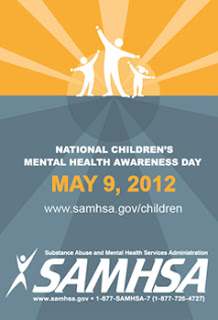Today is National Children’s Mental Health Awareness Day. I’ve been making a point to blog about this for the past few years and you may wonder why. I feel this is an important issue because it is often overlooked. Like adults, children can have mental health problems, but unlike us, they have less life experience to know how to cope with it.
This topic is also especially on my mind this year after reading Victoria Costello’s book about mental illness entitled Lethal Inheritance. She points out that mental health problems many times have a genetic component and symptoms may arise early in a child’s life but parents are often not cued into these warning signs.
When thinking about mental health issues, I think many people often only think of children who have experienced a traumatic event, been neglected, or abused. While these children are, of course, at high risk for mental health issues, any child can have a predisposition towards mental illness.
Parents, especially mothers, play a key role in not only identifying symptoms in their children, but also seeking treatment for their own mental illness, if necessary. Mothers with mental health problems, especially depression, are less able to form strong attachments and healthy relationships with their infants and children. However, mothers who seek treatment have children who are more likely to avoid mental health problems themselves.



Anonymous
Thanks for the reminder, Amy; I hadn't known about this cause. We're learning so much about just what events children process as 'trauma' — so much that seems innocuous just isn't.
Nilima Shah
Your Site seems pretty informative with good knowledge that is keeping us updated with latest information needed. I have found it really useful and helpful.
Regards
Bangalore's Best Nursery School and Bangalore's Top Preschool